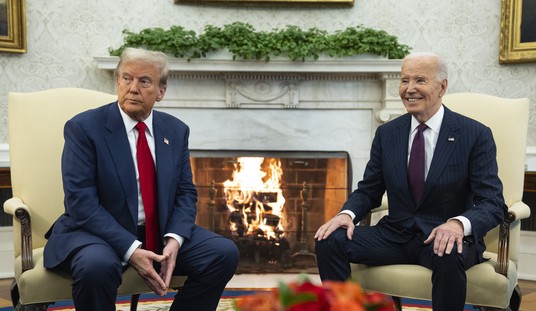The latest suggestion to end the political rancor in America is…a monarchy! Nikolai Tolstoy writes in The New York Times how a king or queen would make America more stable.
Indeed, the modern history of Europe has shown that those countries fortunate enough to enjoy a king or queen as head of state tend to be more stable and better governed than most of the Continent’s republican states. By the same token, demagogic dictators have proved unremittingly hostile to monarchy because the institution represents a dangerously venerated alternative to their ambitions.
Reflecting in 1945 on what had led to the rise of Nazi Germany, Winston Churchill wrote: “This war would never have come unless, under American and modernizing pressure, we had driven the Hapsburgs out of Austria and Hungary and the Hohenzollerns out of Germany.”
“By making these vacuums,” he went on, “we gave the opening for the Hitlerite monster to crawl out of its sewer on to the vacant thrones.”
Tolstoy also suggests monarchies are better than republics because countries know who the next leader is going to be.
No British statesman was more supportive of the colonists’ cause than Edmund Burke, yet none was more eloquent in defense of the benefits of Britain’s monarchy.
“The people of England well know,” he wrote, “that the idea of inheritance furnishes a sure principle of conservation, and a sure principle of transmission; without at all excluding a principle of improvement.”
A monarchy, in other words, lends to a political order a vital element of continuity that enables gradual reform. The rule of law is thus guaranteed by respect for authority — as Dr. Johnson advised Boswell: “Now, Sir, that respect for authority is much more easily granted to a man whose father has had it, than to an upstart, and so Society is more easily supported.”
Their contemporary, the historian Edward Gibbon, weighed the rival systems and came down with characteristic acerbity in favor of a hereditary sovereign. “We may easily devise imaginary forms of government, in which the sceptre shall be constantly bestowed on the most worthy, by the free and incorrupt suffrage of the whole community,” he wrote, but “experience overturns these airy fabrics.”
This ignores history, and the fact monarchies can be just as demagogic as any dictator. English King Charles the First tried to levy a tax without Parliament’s consent, and jailed multiple religious opponents. The Houses of York and Lancaster fought for over three decades for who would rule England in War of the Roses. England and France fought each other for years over America and parts of Europe, while various kings, queens and religious orders fought in the Thirty Years’ War. Peter the Great went to war with Sweden over the Baltic Sea, and went after the Ottoman Empire. The list of monarchist warmongering and political instability goes on and on.
But it should also be pointed out the U.S. might as well have an elected monarchy because of the power of the presidency. The executive has been grabbing more and more power as the term “Leader of the Free World” became more popular. Veronique de Rugy wrote in Reason in 2008 how the Bush Administration issued dozens of powerful new regulations.
Since Bush took office in 2001, there has been a 13 percent decrease in the annual number of new rules. But the new regulations’ cost to the economy will be much higher than it was before 2001. Of the new rules, 159 are “economically significant,” meaning they will cost at least $100 million a year. That’s a 10 percent increase in the number of high-cost rules since 2006, and a 70 percent increase since 2001. And at the end of 2007, another 3,882 rules were already at different stages of implementation, 757 of them targeting small businesses.
Overall, the final outcome of this Republican regulation has been a significant increase in regulatory activity and cost since 2001. The number of pages added to the Federal Register, which lists all new regulations, reached an all-time high of 78,090 in 2007, up from 64,438 in 2001.
Even more worrisome is how agencies implement these rules. In a recent study titled “Homeland Security and Regulatory Analysis: Are We Safer Yet?,” Jerry Ellig and Jamie Belcore of George Mason University’s Mercatus Center (where I work) looked at the regulatory analysis behind the Department of Homeland Security’s regulations. They found that the agency conducted shoddy, incomplete regulatory analysis; never tried to find regulatory alternatives; and didn’t bother arguing that there was a market failure or a systemic problem that might warrant government intervention. According to Homeland Security’s own estimate, its rules cost the economy more than $4 billion a year; the actual cost is likely to be much higher.
FDR also issued New Deal regulations through executive orders, and let’s not forget the executive orders and regulations President Barack Obama has issued during his tenure. This is what happens when a government decides to ignore what’s outlined in the Constitution and do what it wants to do. The U.S. doesn’t need a monarchy; it pretty much has an elected one.
There is a solution, but it’s one that isn’t easy to go about. It requires the people to actually pay attention to what’s going on and not what politicians claim whenever they come up for re-election. It means supporting people like Justin Amash, Mike Lee, and Thomas Massie who are interested in making sure the executive is countered by the legislature. Of course it’s not easy because most people probably would prefer to live their lives without government involvement (those who don’t vote, anyway). This means education is necessary for those who do pay attention to talk to those who don’t or those who are flexible in their opinions. It isn’t easy, but it’s what need to be done.









Join the conversation as a VIP Member